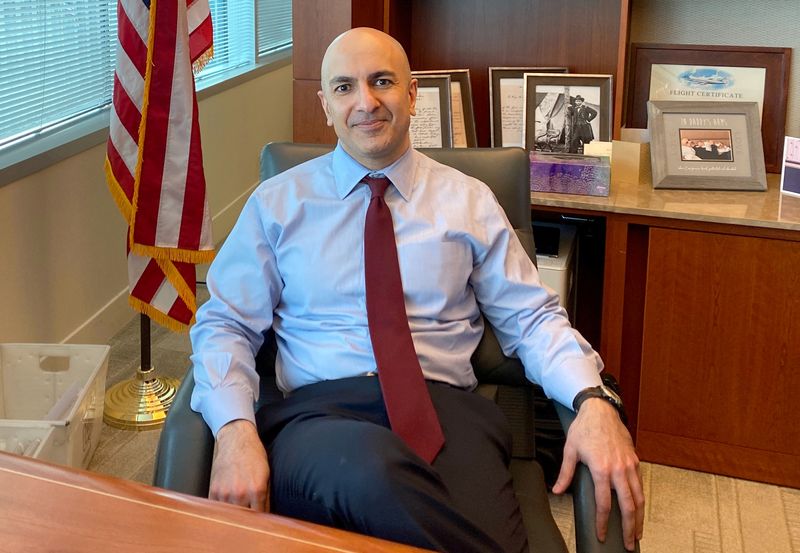(Reuters) - The Federal Reserve will have to raise interest rates more aggressively and risk a recession if supply chain issues don't begin to ebb, Minneapolis Fed President Neel Kashkari said on Friday, as he reiterated that policymakers are keenly watching how far rates will have to rise above the neutral level.
"We know we have to bring inflation back down to 2%. If the job market softened a little bit, that's not much of a tradeoff," Kashkari said during an event at the University of Minnesota in Minneapolis.
"The challenge is going to be if the supply chain issues don't help us, if they don't unwind a little bit on their own ... and we have to use aggressive monetary policy to bring inflation back down then that could lead to a higher unemployment rate, that could lead to a recession," he said.
The U.S. central bank raised interest rates by half a percentage point earlier this week, the biggest hike in 22 years, and Fed Chair Jerome Powell signaled policymakers stand ready to approve half-percentage-point rate hikes at upcoming policy meetings in June and July as the Fed steps up its fight to lower high inflation.
Earlier on Friday, in a post on Medium, Kashkari warned that the war in Ukraine and COVID lockdowns in China will likely delay any normalization of supply chains.
Kashkari also repeated he sees the neutral rate, which is the level of borrowing costs that neither stimulates nor curbs economic growth, to be at 2% but noted that there is a wide range of estimates - roughly between 2% and 3% - among his fellow policymakers.

"The general consensus is we have to at least get up to neutral and probably moderately above neutral over the course of this year into early next year, but again there are a range of estimates on what neutral looks like," Kashkari said.
On how much more the Fed will have to go above neutral, the Minneapolis Fed chief said, "many of us are just waiting to see how the economy evolves."